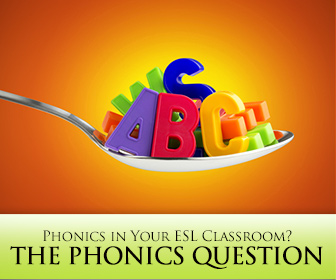Phonics in the ESL Classroom – Is It Right for You?

Sight words, also known as high frequency sight words, are simple, common words that students should memorize in order to help them advance in their reading, writing, and comprehension skills. From complete the sentence activities to assessments and phonics practices, these Sight Words Worksheets will help your students identify tricky words that are commonly used on a day to day basis and master them in no time.
Note: many of these worksheets are best-suited for early elementary levels, like kindergarten.
9 Free Sight Word Worksheets For Kindergarten
Use this sight words worksheet to introduce 10 new words to your students: eat, funny, with, make, yellow, find, little, soon, there, ride. They will find these words in a word bank and use them to fill in the blanks for a set of questions. By first reading the words and then writing them, young learners will get some great practice memorizing the terms. It's a great way to followup after already introducing these sight words, as well as a way to kickstart a new list of them.
Similar to the worksheet above, these sight words are practiced by using a word bank to fill in the blanks. Have your students master common, yet tricky vocabulary like play, white, two, help, my, jump, under, must, where, please. By using this activity as a supplement to your exisitng lesson plans - or as inspiration for new ones - you'll notice your students feeling more confident in their speech and reading skills.
As you're wrapping up the school year, use this seasonal word search to help your students practice and memorize sight words related to the end of the school year! Your kids will recognize terms like camp, read, bike, walk, trip, run, play, hike, dig, fun, rain, swim, warm, and fish. After your students complete the word search, try having a conversation with them where they use some of these terms to describe what they are excited for this summer.
Give your students even more practice with basic sight words with this complete the sentence activity. You'll expose young learners to terms like eat, funny, with, make, little, find, yellow, soon, there, ride. This worksheet is ideal for lower elementary levels and works as a great warm-up activity or homework assignment. You can even build a lesson plan around these words and use them in other reading, writing, and speaking activities.
Common exception words are sight words that tend to be tricky for young ones to pronounce and memorize. They are used in everyday langauge, so students likely hear them quite often, but reading, writing, and speaking these words are a different story. Help them get a better grasp on these common excpetion words through this fun, engaging worksheet! Students will be asked to write a full sentence with a given word in it. There are 10 questions, featuring sight words like door, because, find, most, and only.
If the previous worksheet was a good fit for your class, you'll want to download this free activity as well. It's the same format at the first common exception words worksheet but with all new sight words for your students to focus on. They'll be given 10 words that they will need to incorporate into sentences. You can have them read these sentences aloud for even more practice. Some of these terms include mind, behind, and climb.
Themed worksheets are the best for young learners, and this one will be a blast for your students to complete. It features sight words like bus, train, and taxi, as well as look, see, and can. This downloadable is in the form of a large reader book, followed by a black and white reader for students to be able to color in, sentence cards, and a vocabulary tracer. If you are teaching early-elementary students, this is the perfect in-class activity to help them learn basic sight words!
Sight words can vary in difficulty, and this worksheet focuses on some of the more challenging terms - those with a double 's' and double 'r'. Elementary learners tend to have a harder time pronouncing these words, as well as reading and writing them, so it's important to practice them on a regular basis and use them as sight words so your students are able to quickly recognize them. In this phonics worksheet, students will need to complete the sentence with a word from the word bank. Some of these terms include lesson, error, arrive, and horror.
For more activities that will help your students grow their vocabularly, check out these free writing worksheets.